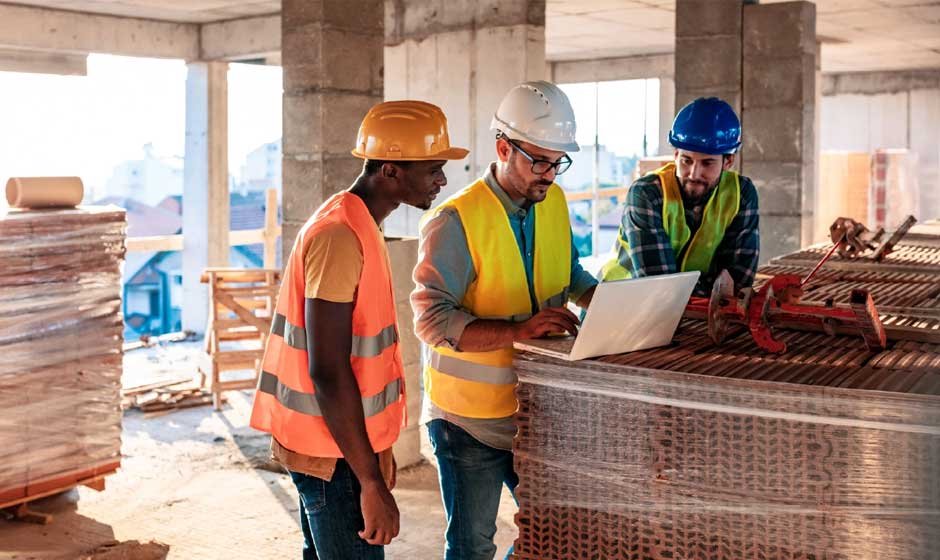Finding the right general contractor for your home improvement project can mean the difference between a smooth, successful renovation and a costly nightmare. So, what questions should you ask when interviewing general contractors near me?
The essential questions to ask potential contractors include their licensing status, insurance coverage, timeline estimates, payment terms, and at least three recent client references for similar projects.
While these basic questions are crucial, they’re just the starting point. To protect your investment and ensure you’re hiring the best contractor for your specific project, you’ll want to dig deeper with more detailed questions that can reveal red flags or confirm you’ve found the right match.
Here Are The Most Important Questions To Ask During Your Contractor Interview
Before typing ‘general contractors near me‘ into search engines and calling contractors, prepare yourself with these essential questions. First, ask about their business operations: How long have they been in business? Are they licensed and insured specifically for your type of project? Can they provide proof of general liability insurance and workers’ compensation coverage? Request their license number and insurance policy details, then verify these independently with your state licensing board and their insurance provider.
Next, focus on project-specific questions: Have they completed similar projects recently? Can they provide detailed references from at least three clients who have done comparable work? What is their typical timeline for a project like yours, and what factors could cause delays? Ask about their payment schedule and whether they offer a written warranty for their work.
What Red Flags Should I Watch For When Meeting Contractors?
Be wary of contractors who pressure you for an immediate decision or demand full payment up front. A legitimate contractor will understand your need to compare quotes and check references. Also, be cautious of prices that seem too good to be true or contractors who can start “right away” – quality contractors usually have a reasonable backlog of work.
Watch their communication style during the interview. If they’re dismissive of your questions, consistently late to appointments, or slow to follow up, these behaviors worsen once work begins. Additionally, if they’re unwilling to pull proper permits or want you to do it yourself, this is a significant warning sign.
How Can I Verify A Contractor’s References And Past Work?
Don’t just ask for references – contact them. Ask these previous clients specific questions about their experience: Did the contractor stay on budget? Were they responsive to concerns? Would they hire them again? If possible, ask to see the completed work in person.
Research the contractor online through review sites, the Better Business Bureau, and your state’s contractor licensing board. Look for patterns in both positive and negative reviews. Also, check if they have a physical business address and verify how long they’ve been operating under their current business name, as some contractors change names to escape bad reputations.
What Should I Expect In A Professional Contractor’s Written Estimate?
A professional estimate should be detailed and in writing, breaking down labor costs, material costs, and any potential additional fees. Be wary of single-line estimates that only show the total price. The document should also specify the payment schedule, estimated timeline, and what work will (and won’t) be included in the scope.
Look for specifics about the materials that will be used, including brands and grades where applicable. The estimate should also address permits, cleanup procedures, and how change orders will be handled. If any subcontractors will be involved, their roles and responsibilities should be clearly stated.
How Do I Protect Myself Legally When Hiring A Contractor?
Never rely on verbal agreements – everything should be documented in a detailed written contract. This contract should include the contractor’s full business information, license numbers, start and completion dates, payment schedule, materials to be used, and warranty information. Have a lawyer review the contract before signing if the project is substantial.
Make sure the contract includes a procedure for handling changes or disputes, and never pay more than 10-30% as a down payment (check your state’s legal limits). Keep detailed records of all communications and payments, and take photos before, during, and after the project. Also, ensure that the contract includes language requiring lien releases from all subcontractors and suppliers to protect you from potential liens on your property.
Time To Start Your Contractor Search
Armed with these essential questions and verification strategies, your next step is to create a written interview checklist that includes all the key points covered above. Having a standardized list of questions ensures you’ll evaluate each contractor consistently. It won’t forget any crucial details during your interviews, making it much easier to compare candidates fairly and select the best professional for your project.










